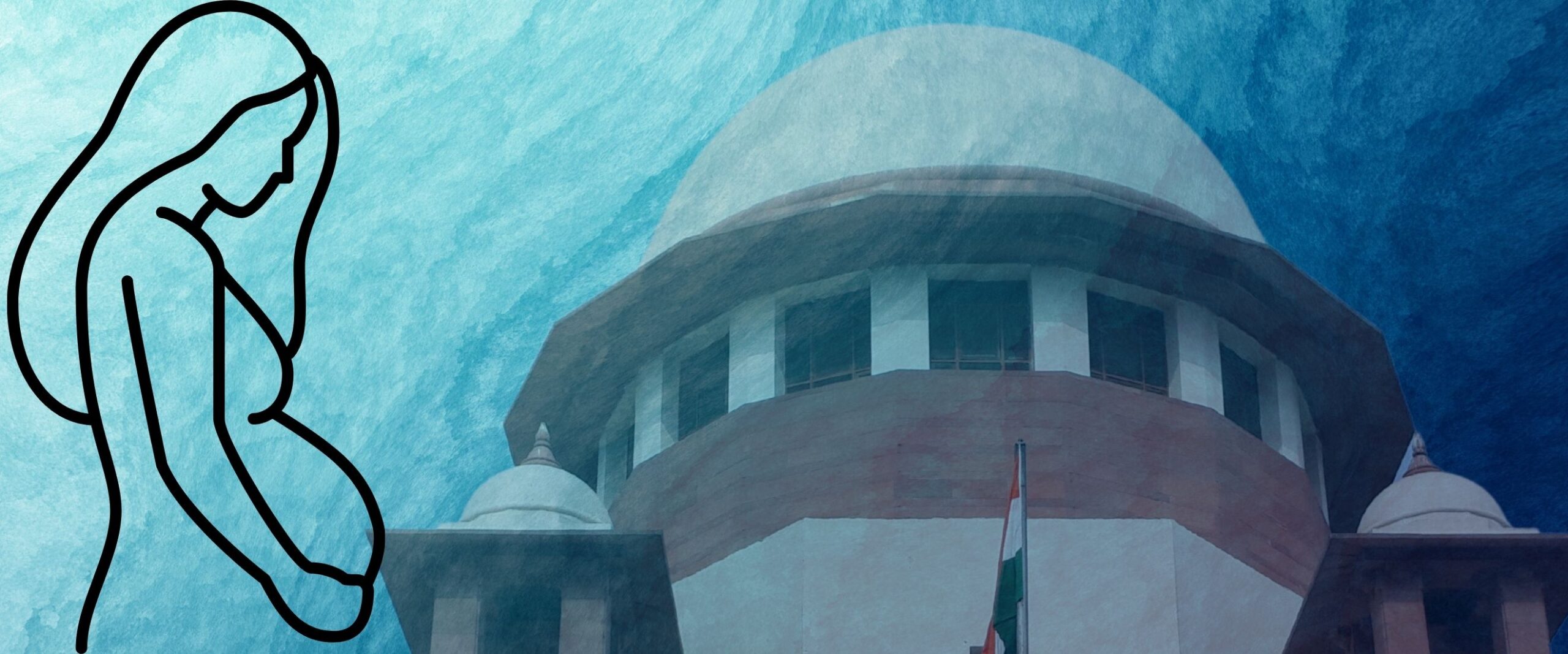Analysis
How can we believe the prescription, Supreme Court asks petitioner seeking termination of 26-week pregnancy
The Supreme Court directed AIIMS to conduct an independent investigation into whether the petitioner was suffering from postpartum psychosis

On 13 October 2023, a three-judge bench of the Supreme Court directed a 26-week pregnant woman to approach the All India Institute of Medical Sciences (AIIMS) to test whether the foetus is suffering from any substantial abnormality. The Court was hearing a plea for termination of pregnancy on grounds of postpartum depression, economic and emotional hardships suffered by a 27-year old mother of two. A visibly pregnant petitioner appeared in Court and sat beside her counsel. In a sea of black robes and white bands, she stood out, in startling verdant green.
In the previous hearing, the three-judge Bench comprising Chief Justice D.Y. Chandrachud and Justices J.B. Pardiwala and Manoj Misra, explained to the petitioner that her plea was putting the court in a difficult place. The Bench had to choose between stopping the foetal heart or delivering the child prematurely, exposing it to lifelong mental and physical deformities. As the hearing ended, they directed the counsel to ask the petitioner if she was willing to continue the pregnancy for another eight weeks. This would ensure that though the child is delivered prematurely, it would not be in danger of developing any deformities.
When the hearings for the day opened, Additional Solicitor General Aishwarya Bhati informed the Court that conversations with the petitioner were unfruitful. She then laid out her arguments in support of the rights of the unborn child.
Bhati: Indian abortion legislation is pro-choice, but not at the cost of extinguishing life
Bhati laid out three key propositions. First, she argued that the Medical Termination of Pregnancy Act, 1971 (MTP Act) was fundamentally pro-choice—that it furthered reproductive autonomy, while balancing it with the right of a viable foetus. Pointing to Sections 3, 3(2)(b), and 5 of the MTP Act, Bhati argued that the legislation has always shied from terminating a viable foetus, unless there was grave danger to the mother’s physical and mental health, threat to her life, or “foetal malformation” with “substantial risk of being incompatible with life.” This showed lawmakers intent to protect the life of a viable foetus after the 24-week mark, she said.
In the second proposition, Bhati argued that the AIIMS Medical Board’s opinion has to be given importance in cases concerning medical termination of pregnancy. After the AIIMS medical board that was constituted to assess this case sent in their report on 6 October, a member of that board, Dr. K. Aparna Sharma had sent an email asking for express permission from the court to stop the heart of the foetus. This would amount to foeticide, she said. The AIIMS board report and the email were congruent, Bhati argued, in alerting the Bench to the dangers of obliging to the petitioner’s request. She argued that the Court must consider the reports seriously.
Third, she argued that the petitioner had changed her intention to abort the foetus several times since the judicial process began. “Sometimes we have to save a person from themselves”, Bhati said, encouraging the Court to give “the baby a fighting chance to survive.”
Mishra: With a concerning list of medical conditions, “how will she bear her children?”
With little to say about the interpretation of the law, Advocate Amit Mishra took the Court through the facts of the case again. He explained that she had developed postpartum psychosis shortly after the delivery of her second child in September 2022. “Postpartum depression and psychosis are different,” he emphasised. She cannot sleep, hallucinates, has attempted suicide, and has harmed the children. In such circumstances, how can she raise a third child, he asked.
As treatment for postpartum psychosis, she had been on a course of medication that has harmed the foetus, Mishra explained. As she was unaware about the pregnancy (due to Lactational Amenorrhea) she had also not taken calcium and other supplements to help the growth of the foetus. He then submitted several prescriptions given to her to treat postpartum psychosis.
CJI Chandrachud: “Are these prescriptions to be believed by the Supreme Court?”
The Bench appeared deeply unconvinced. After a long discussion and scrutiny of the prescription, the Bench noted that there was no indication of what condition the prescriptions sought to address. Even for a common cold, the CJI said, the prescriptions indicate the condition that the medicines were being administered for. In the case of the petitioner, none of the prescriptions mentioned postpartum psychosis.
The CJI asked whether these prescriptions were, in fact, legitimate or were doctored to “bolster the case”.
“In order to place the matter beyond doubt,” the Court directed that AIIMS conduct “their own independent evaluation for the alleged medical condition of the petitioner.” Specifically, AIIMS will look into postpartum psychosis and test whether the foetus is suffering from any substantial abnormality due to the psychosis medication. CJI Chandrachud explained that if the report indicated substantial foetal abnormalities, the petitioner would be covered by Section 3(2)(b) of the MTP Act, and could terminate the pregnancy.
As the hearing closed, CJI Chandrachud remarked “One thing is clear, we are far ahead of other countries…we are a progressive, forward looking country.”
